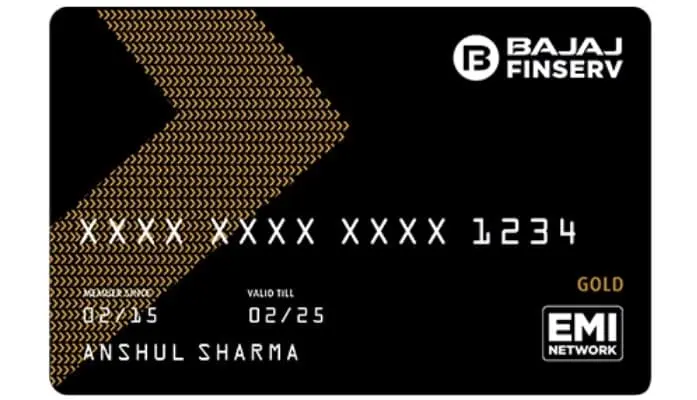Why Bajaj EMI Card Transaction Got Declined By the Bank?
Since EMI cards operate on No-Cost EMI, there is no interest to pay. You just make interest-free installment payments for the price of the item you bought. As a result, you may simply purchase any devices, clothing, equipment, and so on without putting a dent in your wallet. In contrast hand, credit cards charge hefty interest rates based on the purchase price of the item. Your monthly credit card payment is required to be the “minimum amount due,” which is made up of both the principal balance and interest. Unless you cancel the credit card or cease using it, you must continue making your monthly payments.
The two most crucial requirements for eligibility for any EMI Purchases
Credit History
Your credit history ought to be excellent. Your CIBIL score is your credit history.
The bank offers the EMI option, and if a consumer fails to pay the EMI, it is at the bank’s expense. As a result, the bank will only offer EMI on a debit card after confirming your CIBIL score. Your chances of receiving an EMI option on a debit card directly are very high if your CIBIL score is higher than 700.
Purchase History
The second crucial factor. You won’t be able to use the EMI payment option if you are qualified for EMI on the bank’s end but not for the platform where you want to buy your merchandise. Because of your shoddy purchasing history, this has happened.
Let’s use an illustration to try to explain – If you have returned or canceled more than half of the items you have bought from these platforms, it will be challenging to get the EMI option when you wish to buy something from an online site. So, in addition to maintaining a good credit history or CIBIL, you also need to have a strong purchase history.
Reasons For EMI Card Transaction Declined By the Bank

If you are having issues with EMI transactions with your Bajaj EMI Card, read this guide to get the right steps to solve this problem –
Reasons for blocking of your EMI Network Card –
The Bajaj EMI Card may be disabled for a number of reasons, including:
1. Failure to make timely EMI payments – If you haven’t made your EMI payments, the lender may raise your interest rate and/or impose additional penalties and penalties on your loan. A lower CIBIL score: If an EMI is missed, the cardholder’s credit score will drop, which will impact his capacity to take on debt in the future.
2. ECS Mandate not submitted correctly – ECS is an electronic form of payment and receipt for activities that are recurring and periodic in nature. Inability to complete the ECS mandate accurately. Institutions use ECS to make bulk payments for the distribution of dividends, interest, salaries, pensions, etc., or to collect bulk payments for telephone, energy, water, cess, tax, loan amortization, periodic mutual fund investments, insurance premiums, etc. ECS essentially allows for the mass transfer of funds through one bank account into numerous bank accounts or the opposite. Transactions conducted through the National Automated Clearing House (NACH), run by the National Payments Corporation of India, are included in ECS (NPCI). When the borrower inputs erroneous personal information, such as an invalid bank account number or folio number, the application may be refused.
3. Your CIBIL score had plummeted significantly below 750: Errors in the CIBIL report, such as a false statement of repayment default, inaccurate information about ongoing loans or credit cards recorded, etc., may negatively impact your CIBIL score. These could be mistakes made by banks or NBFCs, or they could be the result of illicit activity like identity theft. If your score is below 750, getting credit will be difficult for you. Even though your application has been accepted, you can expect higher interest rates. Additionally, it is quite unlikely that any banks or NBFC will lend you money if your CIBIL score is below 650.
- Check This Also: Why Is My Debit Card Declined When I Have Money?
Customers can rapidly fix any of the aforementioned problems by:
1. Making the EMI payments as soon as you can – Financial gurus advise maintaining an emergency reserve at all times to draw on in times of need. Around 6 months of your pay should be kept in the emergency fund. This way, if something unforeseen occurred to your income flow, you can use this cash to cover your living expenditures and EMIs.
2. If there are problems with your ECS mandate, talk to your bank to get them fixed – if not, send Bajaj a new ECS mandate because the company is proud of its high-quality products and attentive customer service. This is true for all services, and you may easily contact their customer service team online or offline if you need help with Bajaj cards or any other service-related issue. You can go to Bajaj’s official website for further details on how to achieve this.
3. Take the required actions to raise the CIBIL score to over 750
- Limit your credit utilization: Using the credit card less frequently and not to the fullest extent possible may help you improve your credit score. Do not spend more than 30% – 50% of your credit card limit each month. Make sure your monthly cost doesn’t exceed Rs. 50,000 if, for instance, your credit limit is Rs. 1 lakh. Utilizing more than half of your credit card limit raises your credit use ratio, which lowers your credit ratings. Additionally, maxing up your credit card will make it tough for you to manage your finances and repay the debt.
- Get rid of old loans that are hurting your credit. Your credit score suffers if you have several obligations on your credit record. You can decide to pay off smaller, longer-term loans that are negatively affecting your credit score. Your overall debt decreases, which benefits your credit score, when you pay off outstanding loans or credit card balances.
- Avoid submitting multiple loans or credit card applications quickly: Your credit score may suffer if you make too many credit inquiries quickly. What would a lender think if you filed for a credit or debit card, any personal loans, as well as a home loan all at the same time within a few months? It shows that you are eager to obtain credit and are applying for various forms of credit. Your credit score suffers, as a result, lowering your creditworthiness.
Bottom Line –
A specified monthly payment made by a borrower to any creditor on a predetermined day each month is known as an equivalent monthly installment (EMI). Every month, interest and principal are subject to EMIs, and the loan is repaid in full over a number of years. Sometimes the EMI transactions might get blocked.
We hope the steps we mentioned solved your problems with any EMI transactions you are trying to process with your Bajaj EMI Cards.


